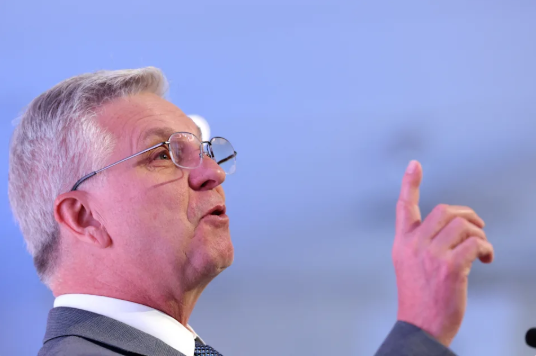Federal Reserve governor Christopher Waller made his strongest call yet for a rate cut in July as he again argued that any inflation from tariffs would be temporary, underscoring a divide within the central bank.
"I believe we should cut the policy rate at our meeting in two weeks," Waller said bluntly in a speech in New York Thursday night, referring to the central bank's July 29-30 policy meeting.
He argued that the Fed's policy rate should be 3%, which is 125-150 basis points lower than the current rate of 4.25%-4.5%.
Waller's words carry increasing weight since he is considered to be among the candidates to replace Jerome Powell as Fed chair next May, when Powell's term is up.
He told Bloomberg Friday that if President Trump "says, 'Chris, we want you to do the job,' I would say yes," but stressed that the president "has not contacted me." He also hinted he may dissent at the July meeting if his colleagues hold rates steady, as is expected.
Waller has been outspoken since the Fed’s last meeting in June about the case for cutting rates sooner rather than later, even saying last week that his opinion was "not political." One of his colleagues, Michelle Bowman, has made the same argument for a July cut.
Their views align with Trump, who has been hammering the Fed and Powell to lower rates by as many as three percentage points.

Waller again made the case on Thursday night that tariffs offer one-off price increases, allowing the Fed to "look through" them and refocus on the employment side of its dual mandate.
And he favors cutting rates now because while the job market looks fine on the surface, private sector job growth is near “stall speed” and other data suggests downside risks to the job market have increased.
He noted that half of the payroll gain in June reported by the Labor Department came from state and local government, while private payroll employment increases were smaller than in the previous two months.
“With inflation near target and the upside risks to inflation limited, we should not wait until the labor market deteriorates before we cut the policy rate,” Waller said.
The new comments are the latest sign of how opposing camps are now forming inside the central bank over Trump's tariffs and how they should affect the Fed's rate decisions.